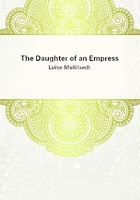First of all let me tell you that the undivided household of the Eastern Slavs is a very ancient institution. In the so-called Chronicle of Nestor, mention is made of the "gens" organisation of the Polians, a Slavonic tribe, dwelling as I have already said, on the banks of the Dnieper. The Polians are stated to live (I translate literally) "each ruling his own kindred or gens (rod svoi) and occupying distinct localities." This rather obscure text authorises the supposition that the Polians were divided into independent house-communities, each of which possessed its own piece of land. Another reference is made to these Undivided Households in one of the paragraphs of the Pravda of Jaroslav,(2*) a sort of Mirror of Justice compiled in the middle of the eleventh century, by order of the Grand Duke Jaroslav, son of that Vladimir who introduced Christianity into Russia. The frequent occurrence of South Slavonic terms in this the oldest Russian code, such, for instance, as that of "bratouchada" (the son of the brother, the nephew) confirms the hypothesis first put forth, so far as I know, by the well-known professor of Russian history at Moscow, Mr Kluchevsky, that the work of codification had been entrusted to some southern Slav. This is the more likely as owing to the recent introduction of Christianity and learning into Russia, there was a lack of well-educated natives, so that the Byzantine Church had frequently to have recourse to priests of South Slavonic origin, in order to propagate the Gospel and the elements of learning among their eastern and northern brethren. Old Russian being much more like the language into which the Holy Scriptures had been translated, and the Slavonic dialect of the translation being that of the Southern Slavs, priests of Bulgarian or Servian origin were the fittest persons in Russia to be employed in this work. The translation of Greek texts, the transcription and composition of Slavonic and Russian MSS., as also the first attempts at a written exposition of Russian customary law would equally fall into their hands. The share of. a Southern Slav in the work of codification would explain the presence in the Pravda of Jaroslav of a term which has led to much comment. The word in question is verv. Various guesses had been made as to its meaning, when at last Professor Leontovitch had the good fortune to find it used in an old South Slavonic customary, the statute of Politza, and that in the sense of Undivided Household or House Community. The sense agrees with the context of the two paragraphs in which the word is used in the Pravda. In one of them mention is made of a case where the body of a man belonging to the "following" of the duke has been found within the limits of a verv; and the other says that in such a case the whole verv must pay in common a fine similar to that which was inflicted in England in such cases during the reigns of William the Conqueror and the early Plantagenets.
A "verv," paying in common a sort of pecuniary composition for a crime supposed to have been committed by one of its members; a "verv" possessing its own proper limits, and therefore its own territorial possession, exactly corresponds to a house-community, in which several persons, living under the same roof and owning land in common, are jointly answerable for the crimes and misdemeanours committed within the limits of their possessions.
If from the eleventh and twelfth centuries, during which the different versions of the Pravda were drawn up, we pass to the end of the fourteenth and the beginning of the fifteenth centuries, we find the same village community mentioned, as well in the North Western principalities of Russia -- that of Pscov, for example, as in those of the South West which were ruled by the Statute of Lithuania. The name under which the members of these communities are known to the Russian law is that of "siabri." This term is employed both by the judicial charter of Pscov (1397-1467) and by the before-mentioned Statute of Lithuania (1529). This word siabri is also to be found among the Southern Slavs. The code of Servian laws, published by King Stefan Douschan in the year 1349, makes frequent use of it when speaking of the peasants.(3*) The peasants of Servia, having always lived, and still living, in undivided households, the term meaning co-partners in the enjoyment of an undivided property, was very naturally applied to them and it is this meaning that the word still keeps in the judicial charter of Pscov, and also in the Statute of Lithuania. The latter was the chief source of the customary law of Little Russia, and the term "siabri" and the institution it calls to mind, are often mentioned in the Little Russian documents of the last three centuries. A recent survey of these sources, made by Professor Louchitzky, has quite settled the question of the existence of House Communities even in those provinces of Little Russia where in our time division of property most prevails. Here as elsewhere individualism seems to have been preceded by a sort of family communism like that of India, ireland and the South Slavonian principalities.













